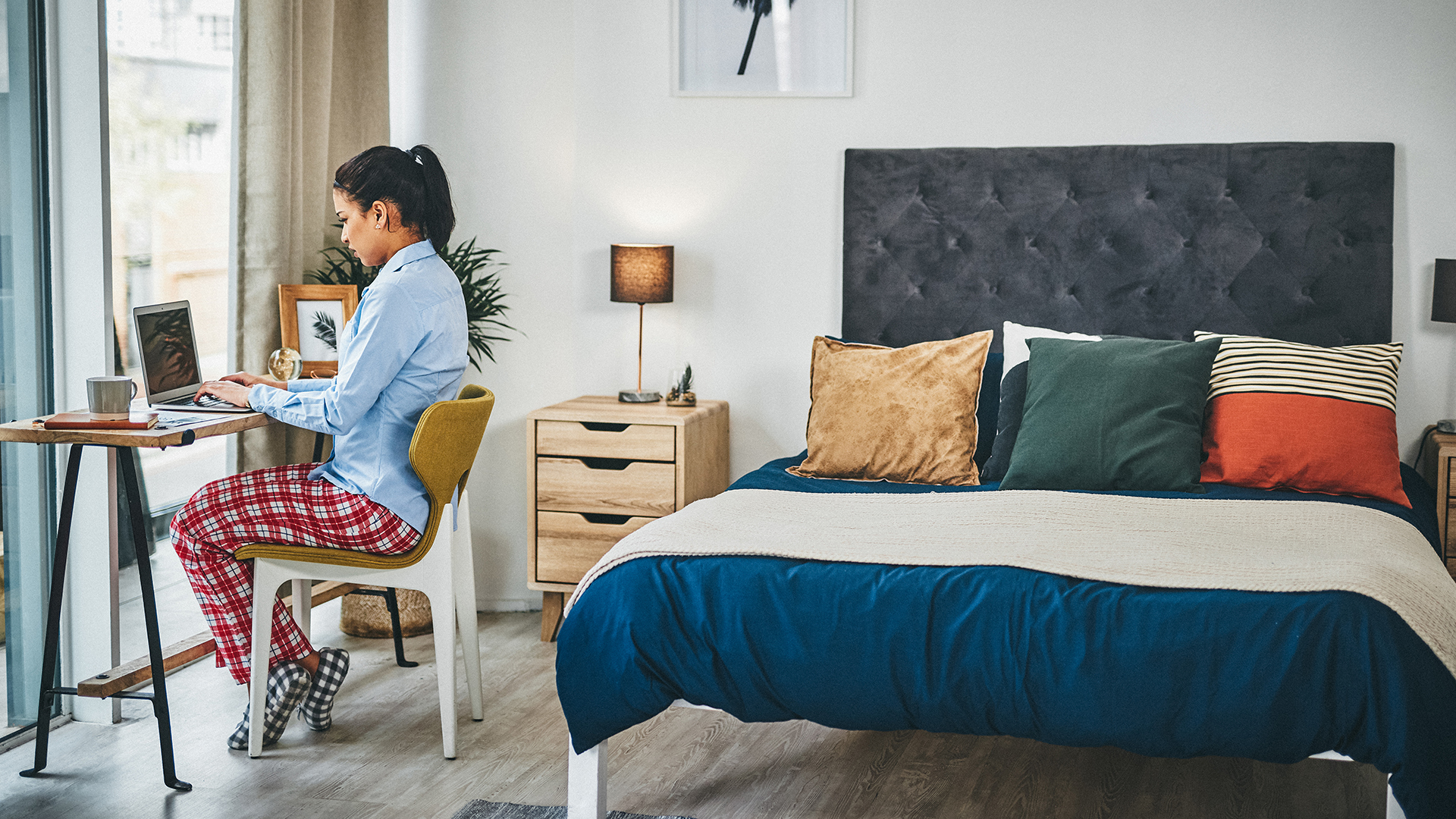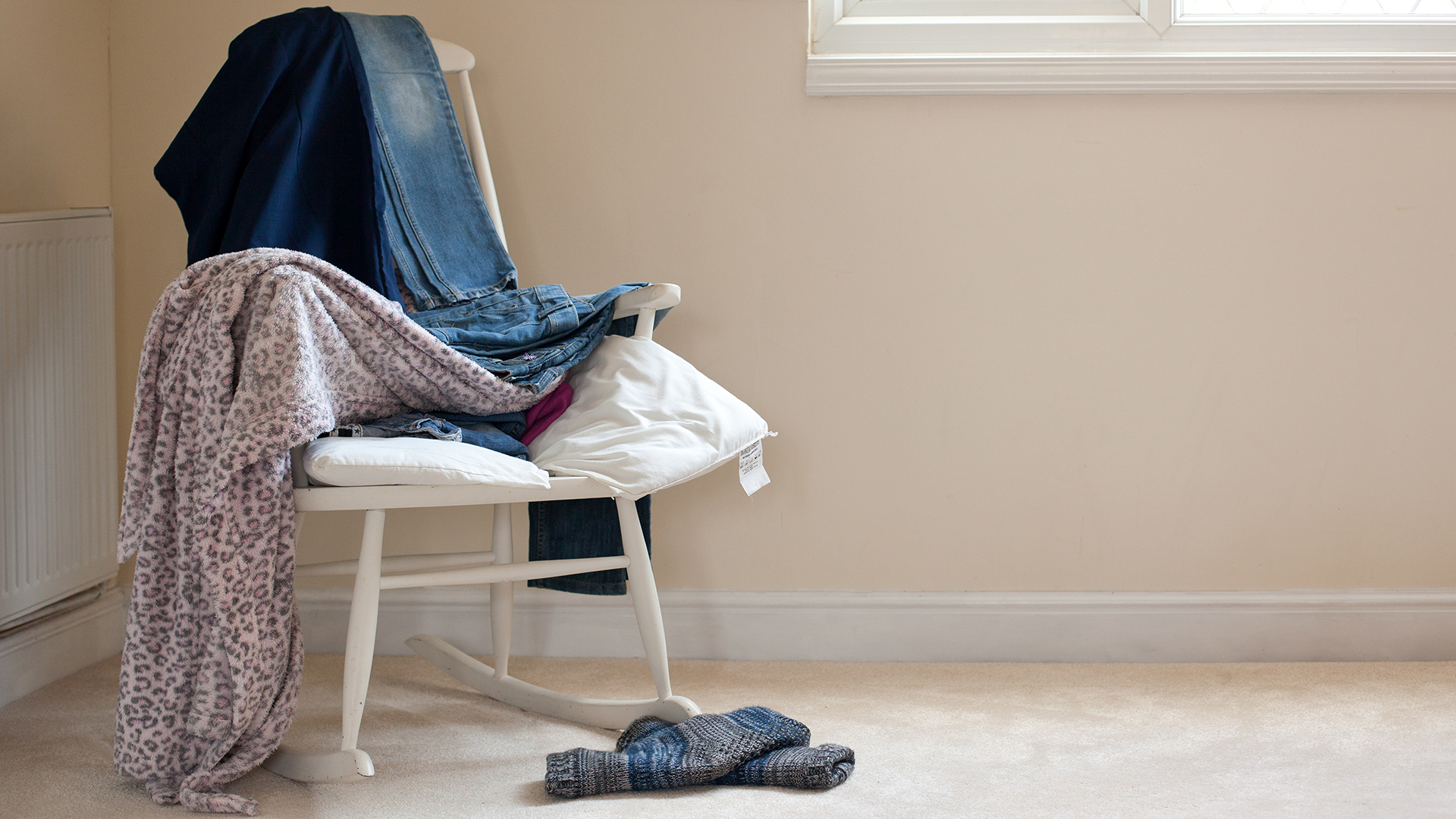
We think a lot about the role our sleep setup plays in achieving good rest – do you have the best mattress for your build, the best pillow for your sleep style, even the best phone alarm to wake up to? But by focusing so much on the bed itself, we can overlook the importance of the space surrounding it. While a messy room might not have as obvious an impact on rest as a bad mattress, a cluttered bedroom is a surprising sleep saboteur.
A cluttered space is more than just a frustration to look at – it's a catalyst for pre-sleep anxiety. Dr Katherine Hall, sleep psychologist at Happy Beds, spoke to us about the impact of clutter on your sleep. “A cluttered environment registers in the brain as an incomplete task, fostering feelings of guilt and stress that significantly disrupt sleep quality," says Dr Hall.
If you’ve been putting off a good tidying up, your sleep might be suffering because of it. In this guide, we’ll explore why mess is so bad for your bedtime and how to get started decluttering for good sleep.
Can decluttering your bedroom help you sleep?
Yes, your mom was right – you really should tidy your room. Decluttering the bedroom can improve sleep quality by removing visual reminders of stress. By decreasing stress, you can reduce cortisol levels, and fall into a deeper, better sleep.
Cortisol, often known as the ‘stress hormone’, is bad news for good sleep. “A [cortisol] surge can disrupt the delicate balance of your sleep-wake cycle, leading to issues like insomnia, reduced sleep time, and morning grogginess,” explains Dr Hall. “However, reducing clutter can effectively alleviate these stress-inducing emotions, paving the way for improved sleep quality.”
3 tips to decluttering your space for better sleep
“If you're considering decluttering, specific focal points can yield significant impact,” says Dr Hall. For a better night’s rest, we recommend starting your tidy up with these three areas.
1. Begin with your night stand

It’s one of the last things we see at night (and one of the first things we see in the morning), so the best place to begin your sleep-boosting declutter is with your night stand. Dr Hall agrees. “Clearing this space creates a tidy surface, crucial for maintaining a peaceful sleep environment.”
Consider how many things you actually need in easy reach of your bed, and get rid of anything that might be disrupting your sleep (such as those dreaded blue light screens). And make decluttering a regular part of your routine. Night stands are small spaces, so mess can quickly pile up.
2. Get rid of work reminders

When tidying for better sleep, it’s important to prioritize cleaning those areas that are most likely to cause a stress spike. If your home working environment is encroaching on your bedroom, you might find the mess is dealing you a double helping of anxiety.
“Removing work-related items from your bedroom helps establish a boundary between work and rest, reducing pre-sleep stress,” says Dr Hall. Ideally, your workspace should be kept separate from your sleeping area (and you should definitely avoid working from bed). If this isn’t possible, make sure all your work reminders are packed away in the evening, and not visible from your bed.
3. Check the view from your bed

Dividing your tidying into manageable sections is a great way to tackle a big task. If you’re decluttering for better sleep, start your cleaning in the areas visible from your mattress.
“Take note of visible clothes and accessories from your bed. Their presence creates visual chaos and detracts from the room's purpose, impacting sleep quality,” explains Dr Hall. “Decluttering these items, easily managed by allocating them to a designated space like a wardrobe or drawer, can vastly enhance your sleep environment.”
As part of your decluttering routine, get into bed and take a look around. What clutter is easily visible from the mattress? When you have identified the problem areas, you can tidy more efficiently. And with your new, refreshing sleep setup, you’ll have the energy to tackle the rest of the cleaning in the morning.







